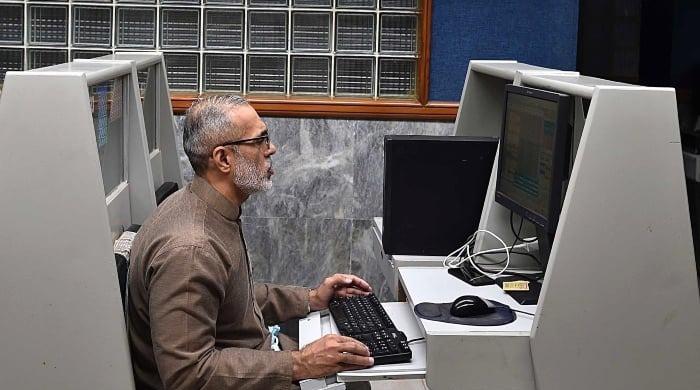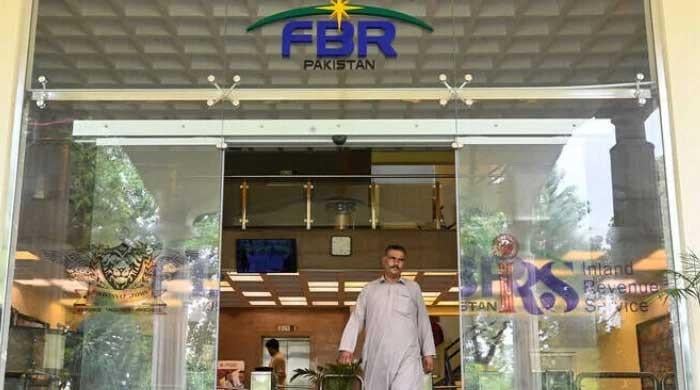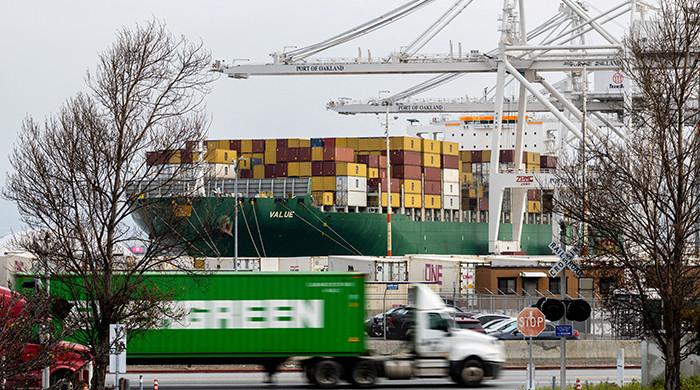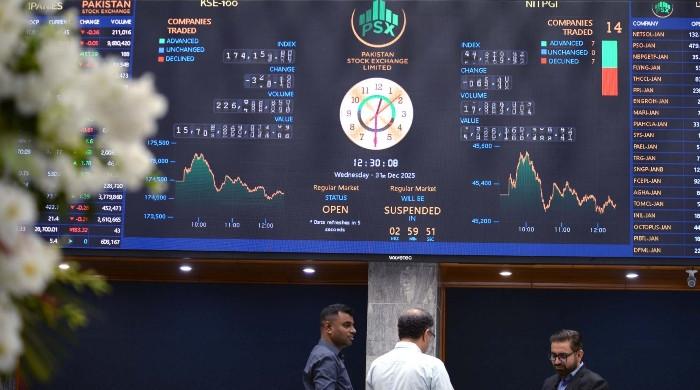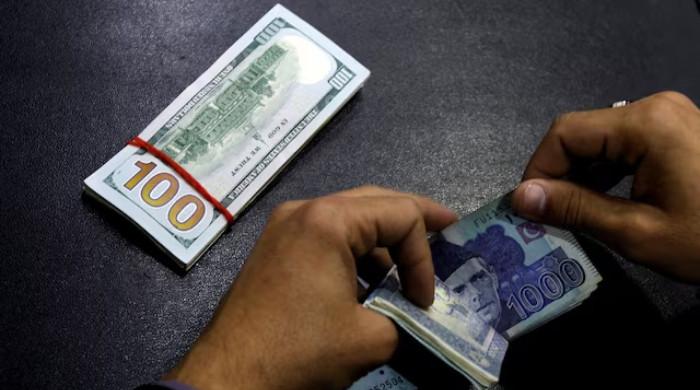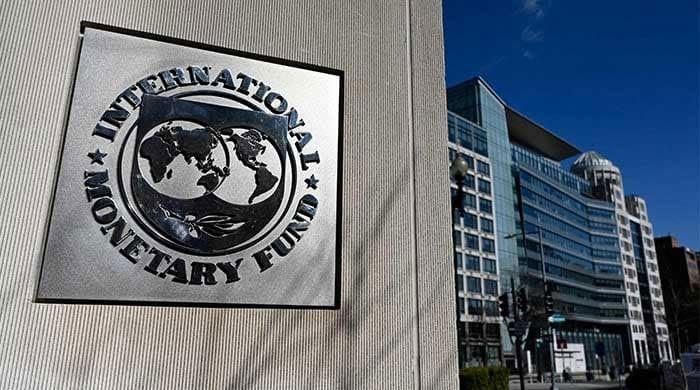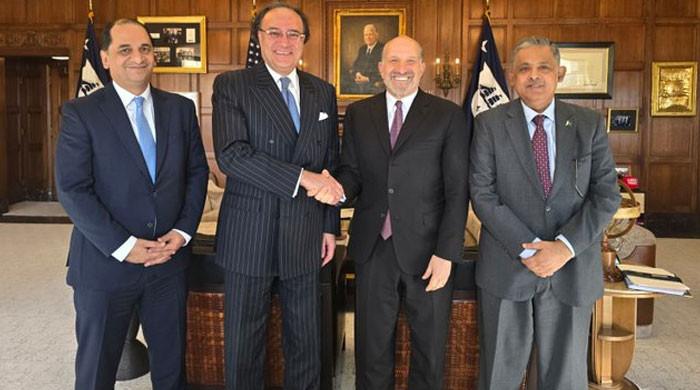Creditors pledge Rs708bn for Pakistan to support emergency response to coronavirus
IMF has already provided $1.38 billion to Pakistan under the Rapid Finance Instrument
April 28, 2020
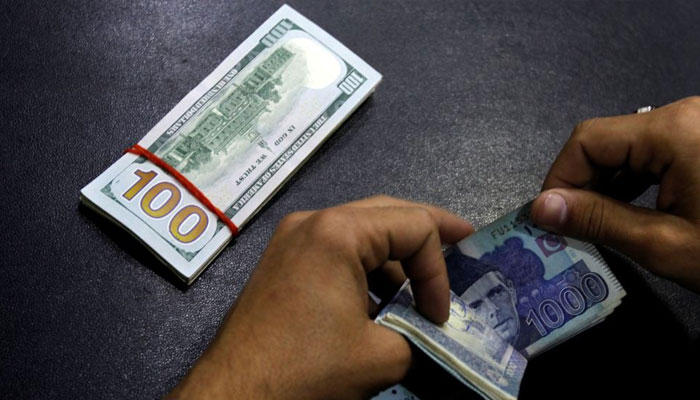
ISLAMABAD: In response to the government’s Pakistan Pandemic Preparedness and Response Plan, several international multilateral and bilateral creditors have made a commitment to provide around $4.4 billion (Rs708 billion) to the country over next 15 month period, The News reported on Tuesday.
Additionally, the IMF has already provided $1.38 billion to Pakistan under the Rapid Finance Instrument (RFI). This commitment has been given by the World Bank, Asian Development Bank, Islamic Development Bank, European Union, and others. Minister for Economic Affairs Division convened an important meeting of international donors here on Monday.
In a high-level meeting held in EAD on Monday, the Minister for Economic Affairs, Makhdum Khusro Bakhtyar, noted with appreciation the continued support received from the international community, including development partners to provide emergency medical response and mitigate socio-economic disruption caused by COVID-19 crisis.
Also read: Pakistan's younger women riding a digital wave in drive for better jobs
Funding to support urgent health response
The meeting was attended by the Ambassador of EU, Country Director ADB, Country Director WB, UN Resident coordinator and the representative of IDB. The government launched Pakistan’s Pandemic Preparedness and Response Plan on April 23, 2020, where development partners committed their financial and technical support, including grant and concessional financing.
Of the major development partners, the World Bank has provided initial support of $240 million in new financing, and repurposing existing financing, to support Pakistan’s urgent health response, social safety nets, distance learning and food security. To date, over 1.8 million PPEs and medical equipment have been delivered around the country.
The World Bank is also ramping up its support to provide over $2 billion in new financing and up to $1 billion in repurposing of existing funds, including $130 million in grant funding over the next 15 months. These funds will support Pakistan’s strong and quick recovery from COVID-19 crisis.
Also read: Mysterious blood clots are COVID-19's latest lethal surprise
Focus on prioritizing resources
An important part of the efforts will focus around prioritizing resources to restore employment and livelihoods for the portion of the population worst affected by the crisis, like the labourers and daily wage earners, through an ambitious public works programme.
Similarly, the Asian Development Bank has so far extended grant assistance worth USD 2.5 million and repurposed USD 50 million from National Disaster Risk Management Fund for Pakistan, which are being utilized by the government to respond to the COVID-19 pandemic health needs at the national and provincial levels.
A USD 500 million worth Counter Cyclical Support Facility and USD 300 million as Emergency Assistance Lending (EAL) to respond to COVID-19 are also under preparation for approval by the ADB Board within this financial year.
Also read: Virus lockdowns begin to ease, cases top three million
UN provides technical training for medical staff
In addition, a pipeline of USD 900 million in Policy Based Lending for reforms in capital markets, trade and competitiveness and energy sector to be approved by the Board of ADB before the end of 2020, is also under discussion. The IMF has already approved and disbursed USD 1.386 billion under its Rapid Financing Instrument.
While there are commitments of USD12.545 million from the European Union and financing support from the Islamic Development Bank of USD500 million in oil financing and USD150 million for mitigating COVID 19 impact.
The UN has provided technical training of medical staff. The UNDP and WHO have also assisted the NDMA and Ministry of Planning, Development & Special Initiatives in preparation of Pakistan’s Pandemic Response Plan. The UNRC has invited Pakistan to join WHO’s COVID 19 partners web-based platform for collaborating on COVID-19 response.
Originally published in The News




